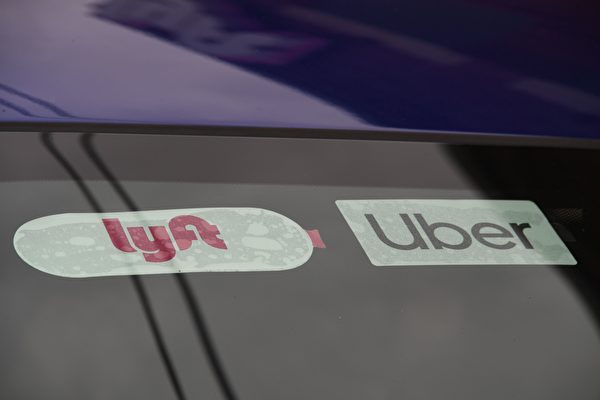The California Supreme Court is set to review a former ballot measure on Tuesday (21st) that would allow Uber, Lyft, and other ride-hailing platforms to classify their drivers in California as independent contractors rather than employees, thus denying them additional benefits.
According to Reuters, the Service Employees International Union (SEIU) and four drivers filed a lawsuit, alleging that the ballot measure passed in 2020 (known as Proposition 22) is unconstitutional. On Tuesday, a seven-member panel of the California Supreme Court will hear oral arguments in San Francisco regarding this case.
For the industry, whether gig workers should be classified as employees or contractors is a crucial issue, as employees are entitled to minimum wage, overtime pay, reimbursement for expenses, and other protections that independent contractors do not enjoy. Multiple studies have shown that not providing employee benefits can save companies up to 30% in costs.
Uber, Lyft, and other app-based service companies have invested over $200 million in support of Proposition 22 and have indicated that without it, the increase in costs might force them to exit the largest market in the United States, California.
A study released on Monday (20th) by researchers at the University of California, Berkeley found that in major U.S. cities, including Los Angeles and San Francisco, after calculating the full costs including wait time, most gig drivers’ income falls far below minimum wage. The report noted that California drivers earn less than their counterparts in Boston, Chicago, and Seattle.
Joseph Bryant, Executive Vice President of SEIU, stated that the lawsuit against Proposition 22 is a crucial part of the movement to secure basic legal protections for gig workers nationwide, aiming to “end over a decade of exploitation.”
The California Attorney General’s Office is responsible for defending Proposition 22 but has declined to comment on the matter.
An industry-backed group, “Protect App-Based Drivers and Services,” has intervened in the case on behalf of the state government. The organization provided a statement from Instacart driver Stephanie Whitfield.
In her statement, Whitfield highlighted that the flexibility of being an independent contractor allows her to earn a living while prioritizing her medical health. She emphasized, “It’s not just about me but also about ensuring that those I serve and their families can continue to rely on these services.”
California is just one battleground in the legal war over the proper classification of gig drivers and other contract workers in the United States.
Minnesota lawmakers recently passed a bill over the weekend that sets a minimum wage of $1.28 per mile and 31 cents per minute for gig drivers, replacing a higher standard set in Minneapolis that prompted Uber and Lyft to threaten to leave the city’s market.
Earlier this month, the Massachusetts Supreme Court heard a dispute discussing whether two competing initiatives should go to a public vote in November, both of which aimed to redefine the relationship between app-based companies and drivers in the state. One initiative, supported by industry groups, is similar to California’s Proposition 22, while the other grants drivers the right to unionize.
Last week, the Massachusetts Attorney General filed a lawsuit against Uber and Lyft, accusing the two companies of illegally classifying drivers as independent contractors to avoid paying minimum wage, overtime, paid sick leave, and other benefits they would owe if considered employees.
Simultaneously, the U.S. Department of Labor is handling several legal challenges targeting a new rule that would make it harder for companies in many industries, including the app-based service sector, to classify workers as independent contractors.
In November 2020, Proposition 22 garnered nearly 60% support from California voters, exempting app-based drivers from the restrictions of the state’s 2019 AB5 law, which significantly limited the possibility of many workers being classified as independent contractors.
However, Proposition 22 allows app-based transportation services to treat drivers as independent contractors, under the condition of paying at least 120% of the minimum wage while carrying passengers and providing limited benefits to eligible drivers, including health insurance stipends for those working over 15 hours per week, but these benefits must be calculated based on driving or delivery time.
In 2021, a state judge ruled that Proposition 22 violated the state constitution, on the grounds that it restricted the legislature’s power to include gig workers under California’s workers’ compensation law.
Yet last year, an appellate court overturned the judge’s ruling, stating that the California constitution allows voters and the legislature to jointly modify the workers’ compensation system. ◇

